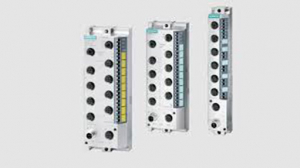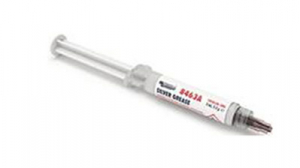Five ways to protect your compressor’s performance this winter

Forecasters are predicting that this winter is set to be the coldest for more than 60 years. While it remains to be seen whether Britain will be battered by the snow, frost and freezing temperatures that are predicted, these warnings do serve as a useful reminder of the impact that cold weather can potentially have on compressed air systems during this season. Here, Steve Downes, Hydrovane Sales and Product Manager at Gardner Denver, outlines his top tips for ensuring compressors are not compromised by the cold weather this winter.
Check filters and dryers
As these parts are responsible for removing water from a system, it is important to check the status of filters and dryers. These parts are vital for preventing downstream freezing, so failing to assess the quality of a compressor’s filters and dryers can really impact on a system’s overall performance.
Ambient environment
Compressors are typically designed to operate in ambient temperatures of between 5°C and 35°C. It is always best practice to site compressors in a heated and insulated space, which is suitably ventilated to avoid temperature extremes. Of course, manufacturers are constantly improving a compressor’s performance outside of these thresholds, but during extreme cold weather it is important that temperatures do not drop below freezing when the compressor is not in operation, as this can affect a machine’s performance. On another note, to really take advantage of the heat a compressor generates then there is always the option of a heat recovery system too. This can help offset costs by directing warm air generated by a compressor into a workspace or warehouse. A heat recovery system can, therefore, present an ideal energy saving opportunity in winter, as heating costs increase.
Leaking profit
Detecting any leaks is a vital way to ensure a compressor remains as efficient as possible. Holes in pipework leads to pressure drop, with the compressor having to work harder – and consume more energy – to meet the system’s pressure demands at the point of use. As the winter approaches, this issue can particularly damage a compressed air system, as any moisture retained in the compressed air will pool in low points and eventually freeze, blocking the pipes. At best, this will restrict air flow; at worst, this can lead to cracks and a costly repair bill. To overcome this, it is recommended that owners and operators regularly check the condition of dryers, which remove the majority of moisture from compressed air, separating it as condensate. Furthermore, it is important to monitor drains on a regular basis for signs of freezing.
An oily issue
In very cold temperatures, oil can thicken. This high viscosity can impact on a compressor’s working components, stopping them from moving freely so easily. Furthermore, oil that is too old can contain water. Should this freeze at low temperatures, then this can affect the compressor’s ability to start-up efficiently and potentially cause premature wear of internal parts. Operators can address this by implementing a regular maintenance schedule that reviews the health of the compressor’s lubricating oil.
Be prepared
Ideally, the issue of low temperature operation should be addressed at the design stage. For those considering investing in a new compressed air system, then factors such as considering where the compressor is sited, pipework options and downstream equipment should all be taken into account when specifying a system begins. For existing systems, any upgrades should prove to be both cost effective and efficient and should include a comprehensive service and maintenance package. However, if winter-proofing a compressed air system feels too daunting a job, then it’s always best to turn to a tried and trusted partner that can assist with this. An on-going maintenance plan can help address any compressor inefficiencies that might cause problems during the winter period.
Similar articles
More from Gardner Denver
- Five ways to protect your compressor’s performance this winter 18th December 2019












Write a comment
No comments